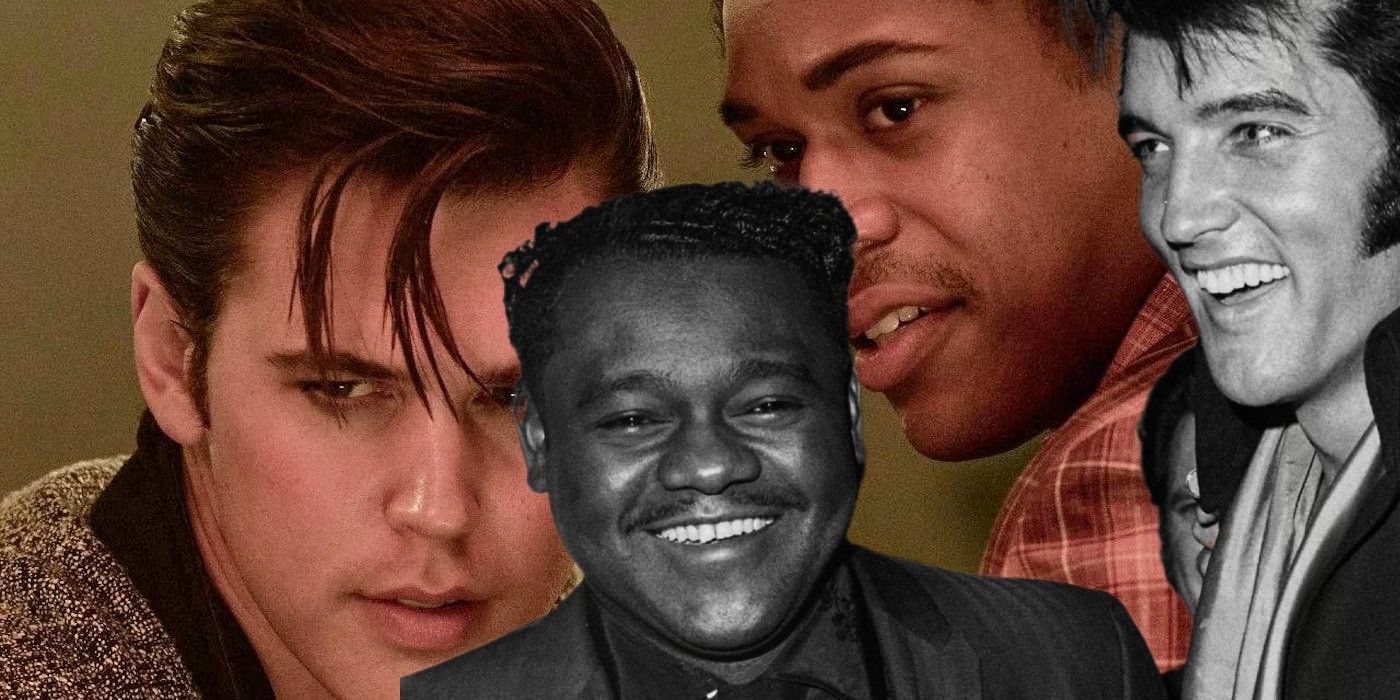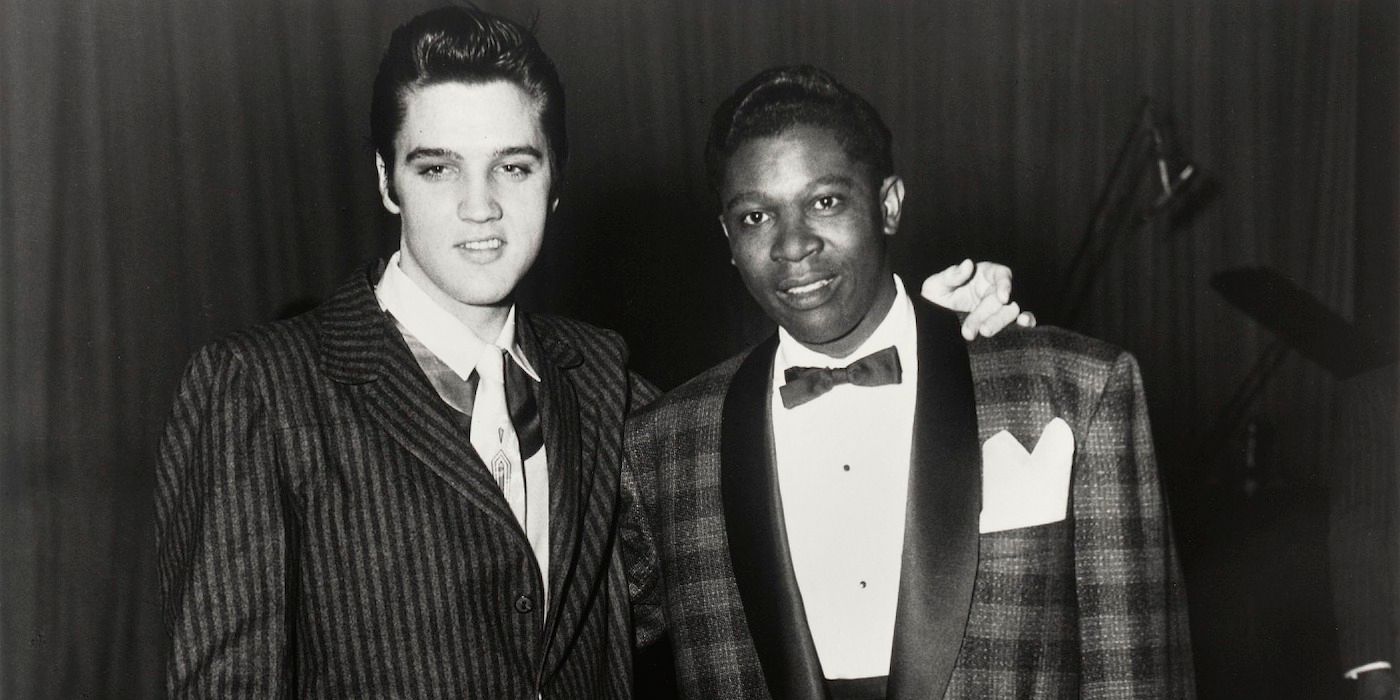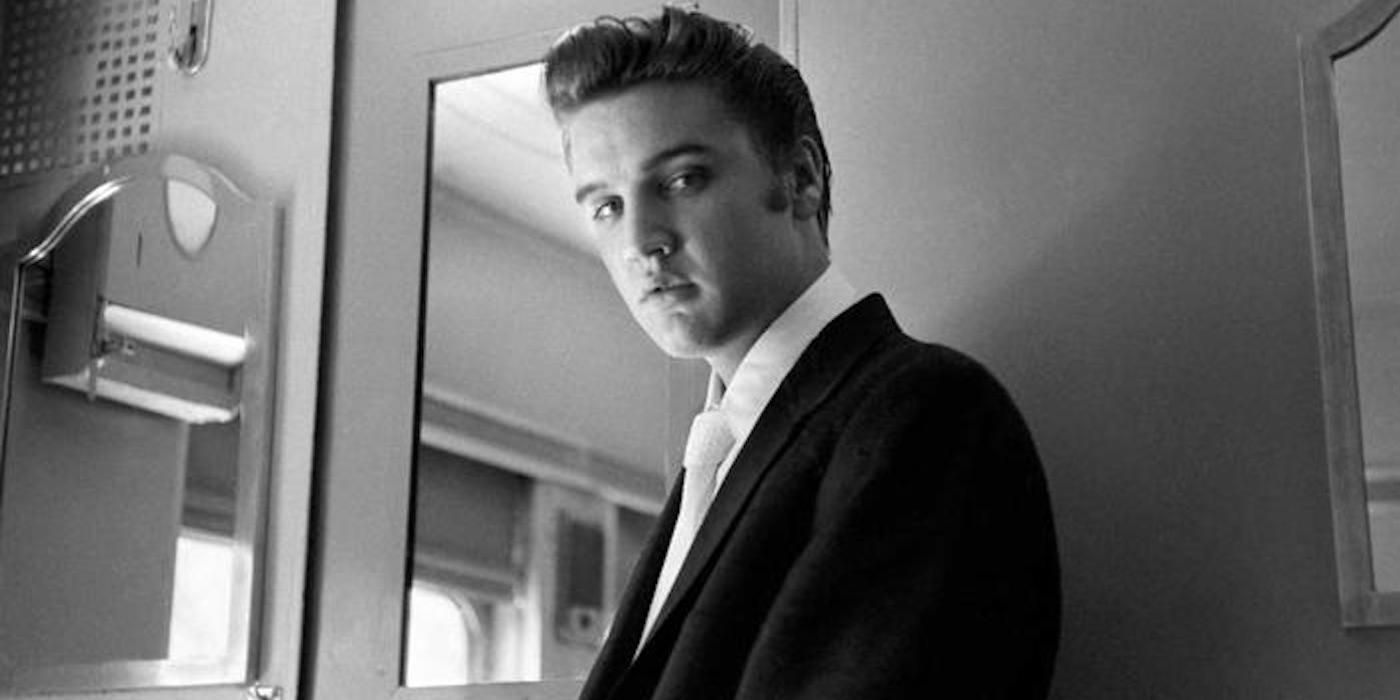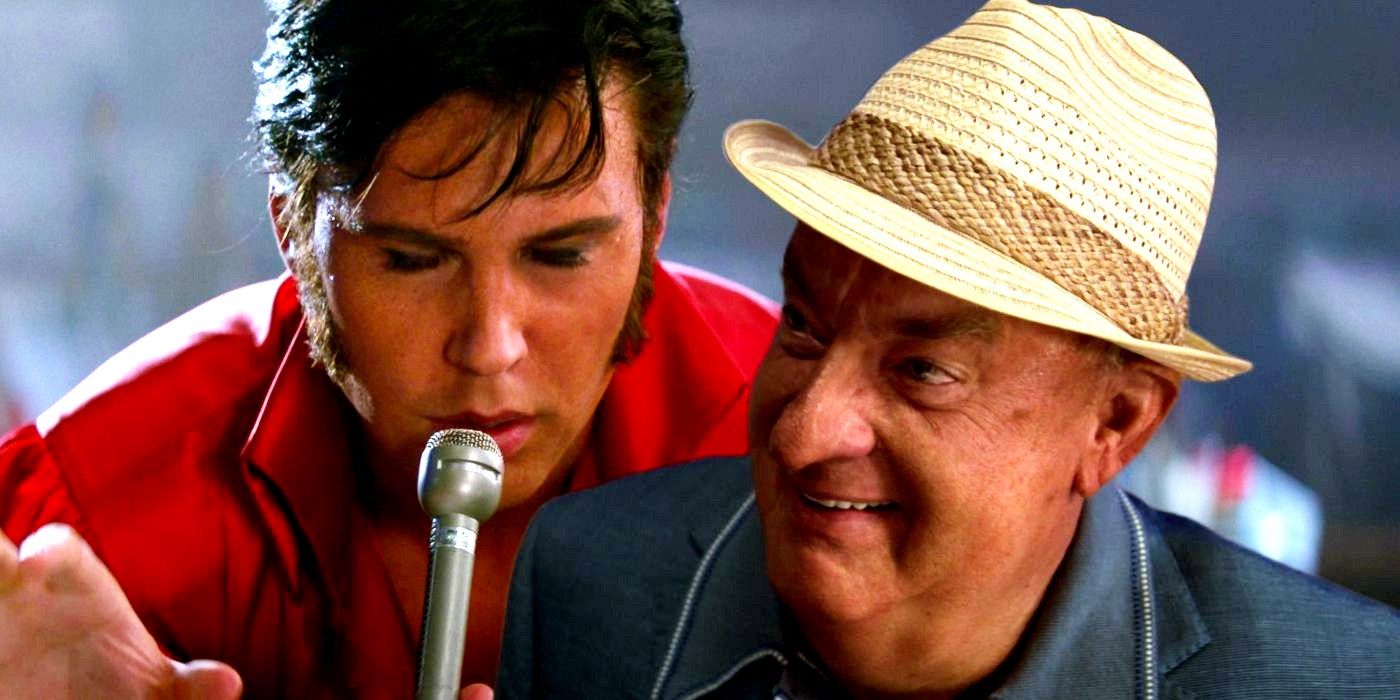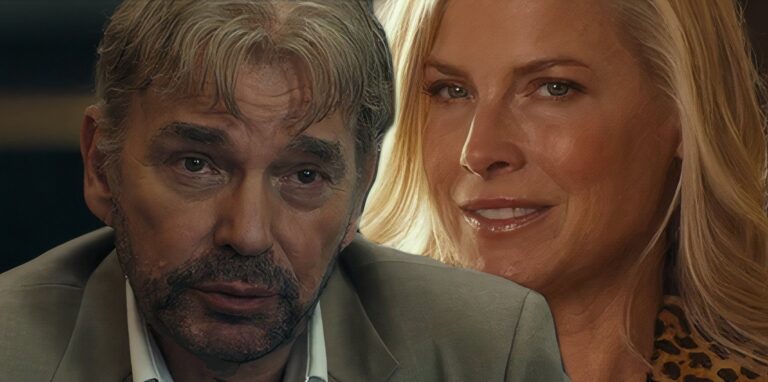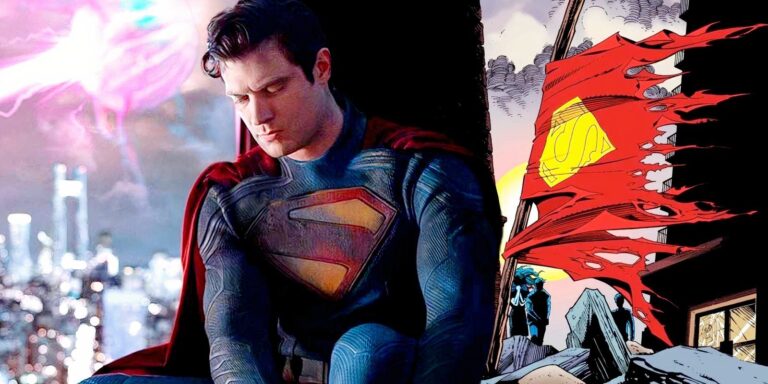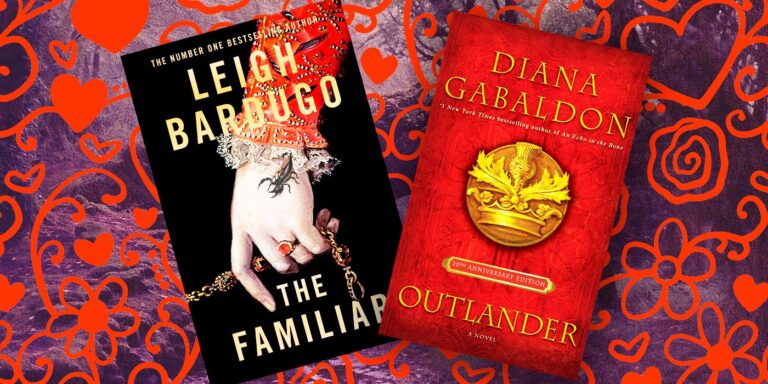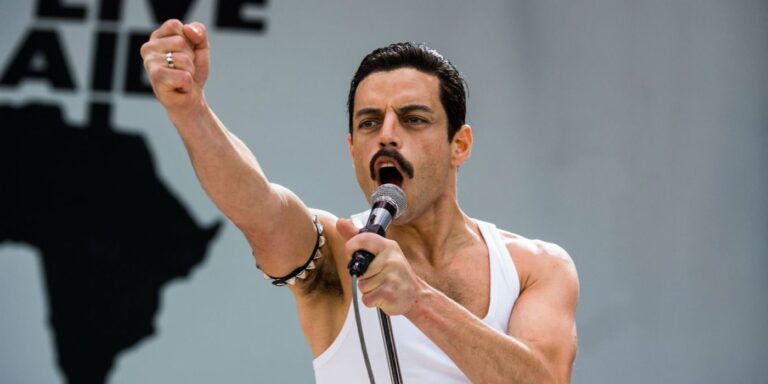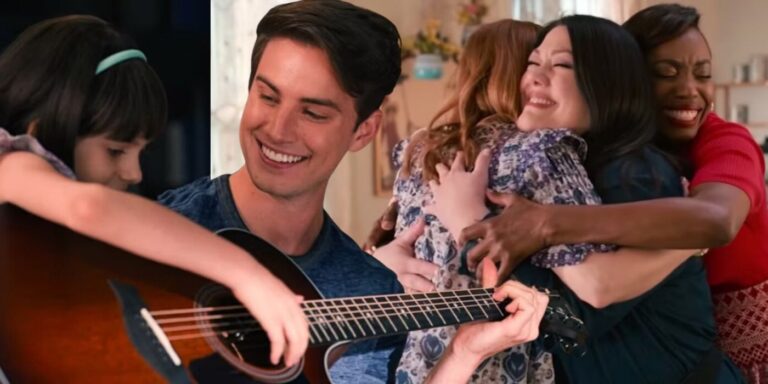Baz Luhrmann’s Elvis shows the young “King of Rock and Roll” hanging out with blues legend B.B. King, and the film has sparked debate over the true story of the relationship between Elvis and B.B. King. In Luhrmann’s trademark style, Elvis is a dizzying and dazzling two-and-a-half hours that weaves together old and new. However, many have claimed that the film misrepresents Elvis’ role as a civil rights advocate and inflates his relationships within the Black community, namely with B.B. King. In fact, some lesser-known details outline just how close they were, including words from B.B. King himself.
As shown in Luhrmann’s biopic, Elvis grew up in a poor, dominantly Black community in Tupelo, Mississippi, where he discovered his musical inspiration at the local gospel church. Elvis and his family then moved to Memphis in 1948 in an apartment complex near Beale Street where Elvis and B.B. King meet up in Luhrmann’s Elvis. The pair pal around, joke, and marvel at the incredible music before King gives Elvis advice about the music industry. Elvis unmistakably shows Elvis and King as friends, a relationship that King himself verified several times throughout his life, but the real history is disputed.
Is There Historical Evidence That B.B. King And Elvis Were Friends?
The Real-Life Duo Had Many Documented Meetings
When it comes to the appearance of B.B. King in the Elvis movie, the question most viewers have is if the pair were friends in real life, or if their relationship was exaggerated for the movie. While Elvis sometimes played things a bit loosely with the truth when it came to the life of the King of Rock n’ Roll, Elvis and B.B. King were indeed friends in real life, and met many times.
The pair first met when they were teenagers as shown in the biopic, with most of the evidence of this period of the musician’s lives coming directly from B.B. King himself. However, while they crossed paths in Memphis in their youth, it wasn’t until they met as adults, when they were both professional musicians, that their friendship fully took shape. In particular, B.B. King continually praised Elvis’s forward-thinking attitude towards race relations, and his attitude towards race in general, which was incredibly progressive for the era in which the pair lived.
What B.B. King Has Previously Said About Elvis
King Revealed Elvis Booked Him On His Shows
Born in a river cabin in Berclair, Mississippi, B.B. King (played in Elvis by Kelvin Harrison Jr.) told a reporter in 2010 (via the San Antonio Examiner), that he felt a kinship for Elvis because both of them “were born poor in Mississippi, went through poor childhoods and we learned and earned our way through music.” That kinship and mutual struggle fostered a friendship between Elvis and B. B. King, with the pair frequently talking about music together. In the interview, King discusses how he and Elvis agreed that:
“Music is owned by the whole universe. It isn’t exclusive to the black man or the white man or any other color. It shared in and by our souls…”
In B.B. King’s autobiography, Blues All Around Me, King also recalls how Elvis orchestrated a show for him at the Hilton Hotel in 1972. Despite Elvis being under the thumb of his tyrannical manager Colonel Tom Parker, King claims (via the San Antonio Examiner) that Elvis “put in a call” and booked King a show in the lounge while Elvis played in the hotel’s main theater. This was something Elvis did several times throughout his career. King speaks fondly about their shows together, saying that they would often wind up in Elvis’ suite after the shows, talking and playing music:
“I’d play Lucille (his guitar) and sing with Elvis, or we’d take turns. It was his way of relaxing’…’We were the original Blues Brothers because that man knew more blues songs than most in the business – and after some nights it felt like we sang everyone one of them.”
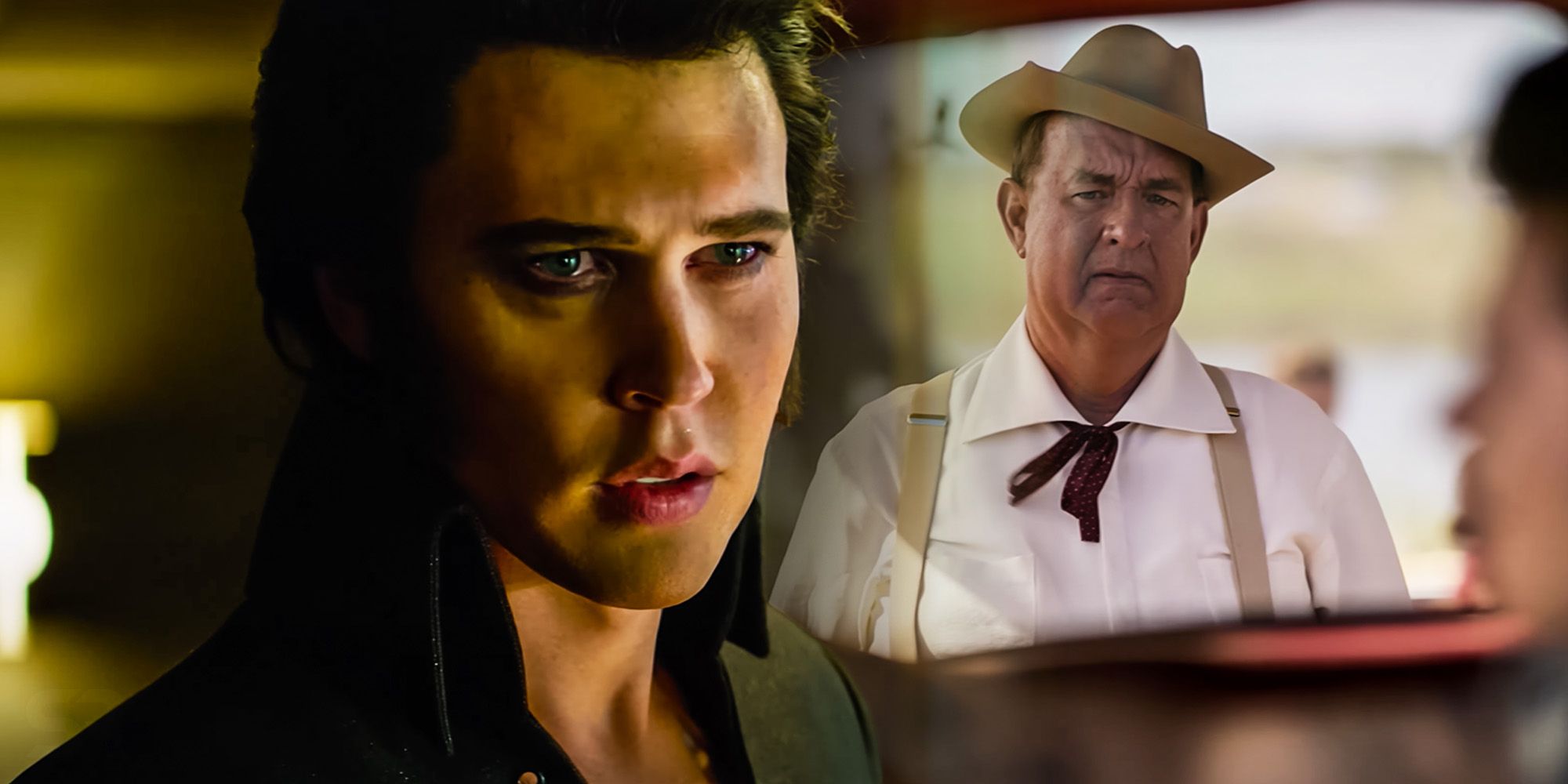
Related
Elvis Ending Explained (In Detail)
Baz Luhrmann’s Elvis biopic ends before Elvis Presley’s death, instead finishing with The King’s Unchained Melody performance in Vegas. Here’s why.
Why Elvis & B.B. King’s Friendship Is Up For Debate
King Also Refuted Criticism Of Elvis Stealing Black Music
Despite King’s frequent claims, the Elvis movie’s accuracy in regard to the friendship between Elvis and B.B. King is still a matter of hot dispute. Author Alanna Nash, who has written several books about Elvis, claims (via USA Today) that King and Elvis were only “acquaintances,” and that their association was nothing but brief interactions, a view that King’s writings and numerous interviews seem to strongly refute.
Meanwhile, others, like former music editor for Pride Magazine, Helen Kolawole, claim that Elvis appropriated the songs of Black artists getting rich and famous from other’s work. On that idea, King has also spoken out, writing in his autobiography (via Vanity Fair):
”
Elvis didn’t steal any music from anyone. He just had his own interpretation of the music he’d grown up on, same is true for everyone. I think Elvis had integrity.
”
So, while Baz Luhrmann may catch criticism for Elvis, the film seems to portray a version of Elvis and B.B. King’s friendship that is at least accurate to the latter’s portrayal of the nuanced situation. Though it is unclear whether the pair ever hung out on Beale Street together as they do in the film, King’s words and writings imply that the two legendary artists maintained a friendship throughout Elvis’ career. Furthermore, King’s recounting of the mutual respect between him and Elvis, and Elvis’ unending love for Black music, seems to corroborate many aspects of the larger-than-life yet tragic character portrayed in Luhrmann’s Elvis.
The Legacy Of Elvis & BB King’s Friendship
The Pair’s Connection Has Been Pivotal In Examining Racism In The Music Industry
Few names in the history of music are as widely known as Elvis Presley, and B.B. King is rightly celebrated as a pioneering legend of blues (especially when it comes to his skills on the guitar, as he introduced many staples of the genre such as string-bending). Both were integral to the birth of Rock n’ Roll, and each left a mark on the music industry in their own right.
Unfortunately, when it comes to the friendship that B.B. King and Elvis shared, the impact is less notable. While the pair met often and got on incredibly well, there was never any collaboration between the two. A song featuring both Elvis and B.B. King is undoubtedly the missing puzzle piece that would have ensured their connection placed its own stamp on musical history, though unfortunately the King of Rock n’ Roll and King of the Blues never found themselves in a recording studio together.
However, this may in part be due to Elvis Presley’s untimely death. Had Elvis lived into his twilight years like his counterpart B.B. King, there’s every possibility the pair would have collaborated. Sadly, it’s only possible to speculate on what this could have been like or when it would have happened, but the duo bringing their influential sounds together would have cemented their relationship in the history books and rendered the influence they had on one-another beyond doubt.
That being said, the friendship of Elvis and B.B. King has been an important aspect of the ongoing discussion around racism in the music industry. It’s undeniable that Elvis enjoyed far greater success at his peak than B.B. King, even though they were both respected musicians. This is something Elvis himself was all too aware of, and Presley’s friendship with King and attitudes towards the racism he and other Black musicians faced laid the foundations for fairer treatment of African American talent (even if there is still, sadly, a long way to go).
Why It’s Important To Accurately Portray Friendships Like Elvis And B.B. King’s In Biopics
Misrepresenting Relationships Between Real People Can Create Problems
The true nature of the friendship between Elvis Presley and B.B. King remains debated to this day, despite the evidence that the pair were close and got on incredibly well. This is why it’s so important for biopics like Elvis to always portray them as accurately as possible. Elvis already saw controversy with its portrayal of Colonel Tom Parker, so if it had over-emphasized the friendship of B.B. King and Elvis it would have created even more issues.
Especially when it comes to such historically significant figures as Elvis and B.B. King, it is vital that their achievements aren’t mis-attributed to one-another. Just as it wouldn’t have been right to insinuate that B.B. King was responsible for Elvis’s success or any of his hit songs, it would also have been disingenuous to suggest that Elvis owed nothing to King and his other Black contemporaries.
For the most part, Elvis managed to keep things relatively balanced in this regard. The tightrope walked when showing these kinds of friendships in biopics is incredibly narrow, however. Perhaps of all the aspects of historical biopics, the moments when individually-recognized figures cross paths are the ones that require the utmost care when bringing to the screen.
The Relationship Between Elvis And Black Artists Would Always Be Challenging For Luhrmann To Depict
The Biopic Chose One Version Of History To Follow Despite The Controversy Surrounding It
Baz Luhrmann’s Elvis chooses to foreground Elvis’s connection with Black music and sympathy for the Civil Rights movement in a way that was bound to be controversial. While such an approach, which includes the use of modern Black music in Elvis, addresses the critique of cultural appropriation head-on, it could also be interpreted as overly flattering to Elvis and his fans by depicting the artist as more progressive than he really was. As a white Australian director, Luhrmann also doesn’t exactly have an insider’s perspective on this issue.
The relationship between Elvis and B.B. King is a microcosm of this difficulty. The extent of King and Elvis’s relationship is historically disputed, even by those who were there at the time, meaning that no matter how Luhrmann depicted it, it would clash with at least one version of events. If he had chosen to leave B.B. King out of the movie, Luhrmann could have been accused of ignoring the inspiration that Elvis took from Black musicians. As it is, the Beale Street meeting between B.B. King and Austin Butler’s Elvis may not be the most historically grounded scene in the movie, but it works as a way to acknowledge Elvis’s connection to the Black musical culture he grew up around.
